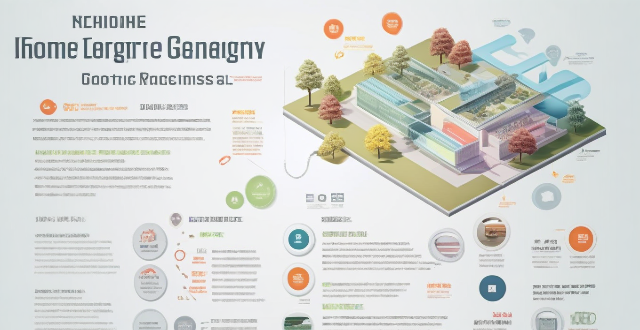A home energy audit helps identify inefficiencies and suggests upgrades, leading to electricity savings. It includes checks on insulation, air leakage, ductwork, appliance efficiency, and lighting systems. It also promotes behavioral changes and renewable energy options, providing a prioritized plan for improvements along with information on financial incentives.

How Does a Home Energy Audit Help in Saving on Electricity?
Introduction
A home energy audit, also known as an energy assessment or energy evaluation, is a comprehensive examination of a home's energy use. It helps identify where and how a household can save money on electricity by pinpointing areas of energy inefficiency and suggesting ways to improve them. Here's a detailed breakdown of how an energy audit contributes to saving on electricity:
Identification of Energy Inefficiencies
- Insulation Check: An auditor checks the state of insulation in the attic, walls, and floors. Poor insulation leads to heat loss in winter and heat gain in summer, causing HVAC systems to work harder and consume more energy.
- Air Leakage Test: The audit includes a blower door test to measure air leakage. Gaps around windows and doors can significantly increase heating and cooling costs.
- Ductwork Inspection: Leaky ducts can waste a lot of conditioned air before it reaches its intended location, increasing the load on heating and cooling systems.
Energy-Efficient Upgrades
- Appliance Efficiency: Old appliances often use more energy than newer models. An audit might suggest replacing old appliances with energy-efficient ones.
- Lighting System: Switching from incandescent bulbs to LEDs can drastically reduce lighting energy consumption.
- Thermostat Settings: A programmable or smart thermostat can help manage heating and cooling more effectively, reducing unnecessary energy use.
Behavioral Changes
- Occupant Education: An audit may include tips for occupants to change their behavior, such as turning off lights when not needed or using power-saving modes on electronics.
- Maintenance Schedule: Regular maintenance of HVAC systems and other appliances can keep them running efficiently and prevent energy waste.
Recommendations for Renewable Energy
- Solar Potential: An audit might assess the feasibility of installing solar panels based on the house's orientation and roof conditions.
- Geothermal Options: For some regions, a geothermal heat pump could be an efficient alternative to traditional HVAC systems.
Implementation Plan
- Prioritized List: The audit provides a prioritized list of improvements based on their cost-effectiveness and potential energy savings.
- Financial Incentives: Information about available rebates, tax credits, and other financial incentives for energy-efficient upgrades is often included.
Conclusion
By identifying areas of energy waste and providing tailored solutions, a home energy audit serves as a roadmap to reduce electricity consumption. Not only does this lead to cost savings, but it also benefits the environment by reducing the carbon footprint associated with energy production and consumption.